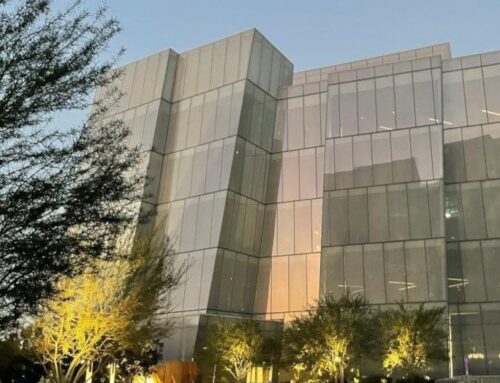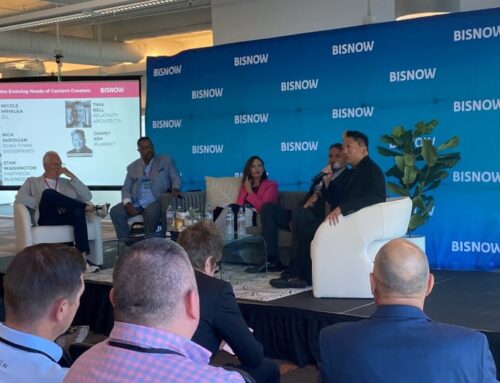2020 has come and gone leaving many new information technology challenges in its wake. Mitigation of Covid-19 in the workplace and the necessary transition from in-office to remote working has not been easy for the corporate world. Many companies find themselves unprepared for the complex transformations needed to support a suddenly remote workforce as well as a post-pandemic ready workplace. Expert insights and real-world tested solutions are needed to help plan and execute better technology solutions. Businesses need the guidance of seasoned workplace IT experts to ensure that capital technology expenditures are useful in a post-pandemic world.
As workplace technology and IT infrastructure experts, PLANNET is well versed in the latest trends and best practices for supporting a post-pandemic workforce. We have the knowledge and experience to anticipate how IT infrastructure will evolve to better support the workers while accounting for security and efficiency considerations. What follows are five workplace technology trends we believe will continue to grow in 2021:
(1) Proliferation of thermal scanning and RFID wayfinding technology to track Covid-19 Infections
PLANNET has identified several new technologies such as thermal scanning and RFID wayfinding that can track a person infected with Covid-19 in order to determine where they have been and who they have come in contact with. This will ultimately halt the rapid progression of the disease in the workplace by immediately identifying Patient Zero. For example, employees could be equipped with RFID-based temperature-scanning key fobs. Upon entering a facility, their assigned fobs can be used to take their temperatures. Employees with fevers may be advised not to enter the building.
“The technology can even trace back to the location in a facility an infected person has been and identify specific areas for disinfection,” adds Jorge Meraz, Vice President and Senior Principal for PLANNET’s Workplace Technology Consulting practice.
(2) Touchless technology becoming more commonplace
Along with new tracking services, touchless technology will not only be commonplace but become the new industry standard for architectural design and construction. Televisions, lights, elevators, and doors will all become proximity sensor activated in order to eliminate any physical touchpoints. Smartphones will become an even more powerful tool allowing your team to pass through security, ride the elevator or enter the parking garage. “One of our larger clients is considering implementing smartphone technologies to do critical, but routine activities like using your phone to operate the printer without ever having to touch a panel,” says PLANNET Principal Trent Wright. New and improved access to wireless connectivity will play an integral role in these endeavors. Readily available apps will empower workers to use their personal devices for a variety of job-related functions, from controlling A/V equipment to ordering lunch.
(3) Insurance incentives for risk eliminating technology adaptation
New technologies such as those outlined above will go a long way in improving the safety of workers and the workplace environment. “From a liability standpoint, implementation of these technologies could possibly lower insurance rates,” says PLANNET’s Meraz. In the coming months, with the implementation of these risk-eliminating new constructions, insurance companies may begin offering better insurance rates or incentives to clients in order to improve employee liability. Take advantage of PLANNET’s holistic architectural, AV, and access control approach and expertise when transitioning to these new technologies and your organization too can potentially enjoy these cost-saving benefits.
(4) App-based calling services continue to grow in popularity
Companies are moving away from physical landlines and transitioning to app-based calling services such as Microsoft Teams. For remote workplace and work from home employees, managed services and AI can leverage cloud-based systems to make the work experience better. “Vital work from home considerations such as corporate data security, reliable internet connectivity, bandwidth expansion, calling, printing, and meeting platforms are all part of the new solutions,” says Nick Henry, a Principal with PLANNET’s Workplace Technology Consulting group. As a vendor-agnostic managed service provider, PLANNET is uniquely qualified to develop solutions tailored to your company’s individual needs in order to make these new transitions as simple as possible.
(5) Continued migration to the cloud from solely premise-based systems
Continuing a trend from the past few years, many companies are migrating to the cloud and away from premise-based systems as quickly as possible. This often creates complications with security and architecture design that makes the traditional workplace and work from home transition difficult. “Nine out of ten clients are coming to us wanting to migrate to the cloud and digitize everything. We advise clients to avoid deploying too fast,” adds Henry. “PLANNET leverages our expertise rather than trying to upsell clients on the ‘latest and greatest’ tech. We view the company holistically and tailor solutions for a company’s individual needs.”
How to best move forward
According to PLANNET’s Henry, “Support for home office and remote workers has inherent complexities around it, everybody’s internet speeds are different and that impacts peoples’ ability to work. Secure, easy access to company data/files, and the ability to share and collaborate are also critical keys to success. IT organizations will try to remedy that and make the employee experience as secure, smooth, and productive as possible.”
Although unexpected, the COVID -19 pandemic has created a platform for change that is ultimately setting a new standard for a normal work environment. According to PLANNET CEO Andrew Harrod, “Clients need us to stay up-to-date on leading-edge technology and help them make business-first technology decisions. While working from home is going to continue past quarantine conditions, PLANNET is ready to help companies integrate with the new industry standards.”
Please feel free to reach out for a consultation on how PLANNET can help you navigate the complexities and integrate new industry standards moving forward.
And for more useful insights and guidance, check out PLANNET’s latest ebook: Technology’s Role in the Post Pandemic Workplace.






